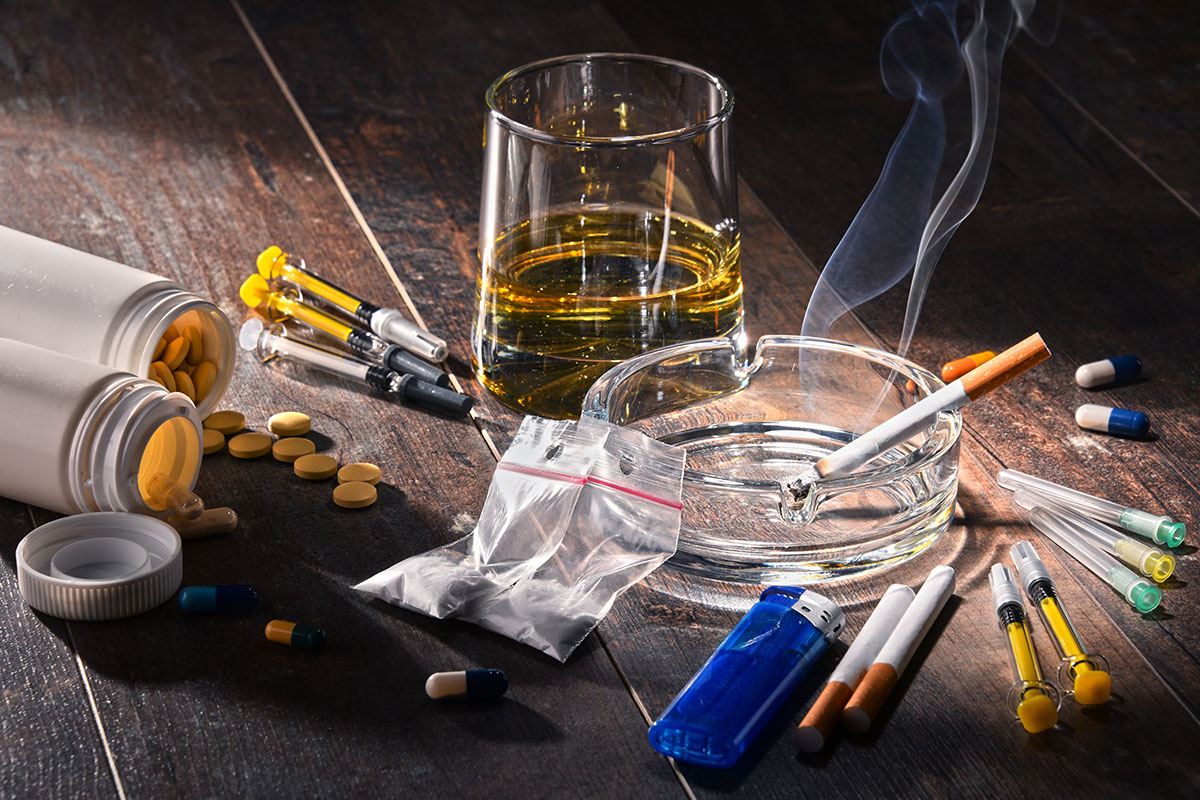
Key facts
- Substance abuse involves using too much alcohol or other drugs, often leading to problems with health and everyday functioning.
- Around 1 in 20 Australians has an addiction or substance abuse problem. It can result in changes and long-term damage to your brain and other organs.
- Many treatment options are available for substance abuse, ranging from counselling through to hospital treatment.
What is substance abuse?
Substance abuse involves overuse (often to dangerous levels) of alcohol, tobacco or other drugs. Substance abuse can also be called substance use disorder.
Substance use disorders are when use of a substance:
- is heavy
- is prolonged
- creates personal or social problems
Around 1 in 20 Australians has an addiction or substance abuse problem. It can result in changes and long-term damage to your brain and other organs.
What substances are commonly abused?
Commonly abused substances in Australia are tobacco and alcohol.
- Smoking is the main cause of preventable death and disease in Australia.
- About 1 in 4 Australians drinks alcohol at risky levels.
Alcohol can lead to:
- short-term risk of accidents
- injuries
- violent behaviour
It can also cause long-term medical complications such as liver disease and mental health disorders.
The most used illicit drugs in Australia are:
- cannabis
- cocaine
- ecstasy
Drug use disorders can include:
- the misuse of illegal drugs (such as cannabis and amphetamines)
- the use of medicines, like painkillers or sedatives, for non-medical reasons
This page focuses on alcohol and illicit drugs.
What are the signs of substance abuse?
Signs that your substance use is becoming a problem include:
- loss of control of alcohol or drug use
- harm from substance use, such as injuries, medical problems, damaged relationships or problems at work
People who abuse substances may become addicted to and dependent on those substances.
- Addiction is a mental and physical dependence, where you are unable to control or stop using the substance, even when it’s causing you harm.
You may develop tolerance and have cravings or withdrawal symptoms when stopping.
- Tolerance is when the substance does not have much effect on you, or you need more of the substance to get the effect you want.
- Withdrawal symptoms are feelings of physical illness when not using the substance. These symptoms are relieved by taking more of it.
What to look for if you suspect substance abuse
Signs that you or someone you know might be abusing a substance include the following.
- Regularly using more of a substance than intended.
- Regularly trying to cut down or stop using, but never succeeding.
- Spending too much time getting, using or recovering from the substance.
- Cravings, or a strong desire to use the substance.
- Using substances again and again, even when you’re aware of the potential damage or danger.
You should also look out for signs of the impact on your life.
- Often failing to meet responsibilities at work, home or school because of substance use.
- Continuing to use a substance when it has caused relationship problems.
- Giving up social, work or leisure activities because of substance use.
- Dangerous or risky behaviour, such as criminal behaviour, drink driving or having unprotected sex.
- Continuing to use, even when you know you have a physical or psychological problem that could have been caused or made worse by the substance.
How does substance abuse affect mental health?
People with a mental illness experience drug problems at a higher rate than the general community.
Having a mental illness can make you more likely to abuse drugs to lessen your symptoms and make you feel better in the short term.
In other people, drug problems may trigger the first symptoms of mental illness. Drug use is also a risk factor for suicidal behaviour.
How is substance abuse treated?
Many treatment options are available for addictions and substance abuse. These range from counselling through to hospital treatment.
Treatment depends on which substance is involved and how dependent you are on the substance. It may also depend on your level of risk and how much support you have at home.
Treatment options include:
- lifestyle changes
- individual or group counselling
- peer support
- rehabilitation (rehab) programs
- residential or hospital treatment
- social support
Withdrawal or detoxification (detox) means stopping or reducing your intake of the substance. You may need medical treatment as well as counselling, support and rehab to help you during or after withdrawal. Sometimes medicines are given to reduce cravings.
For people who have a substance use disorder and a mental illness, treatment needs to address both conditions at the same time.
Where to get help
If you’re concerned that you or someone you care about may have a problem with substance use, see your doctor. You could also try healthdirect’s Symptom Checker and get advice on when to seek professional help.

